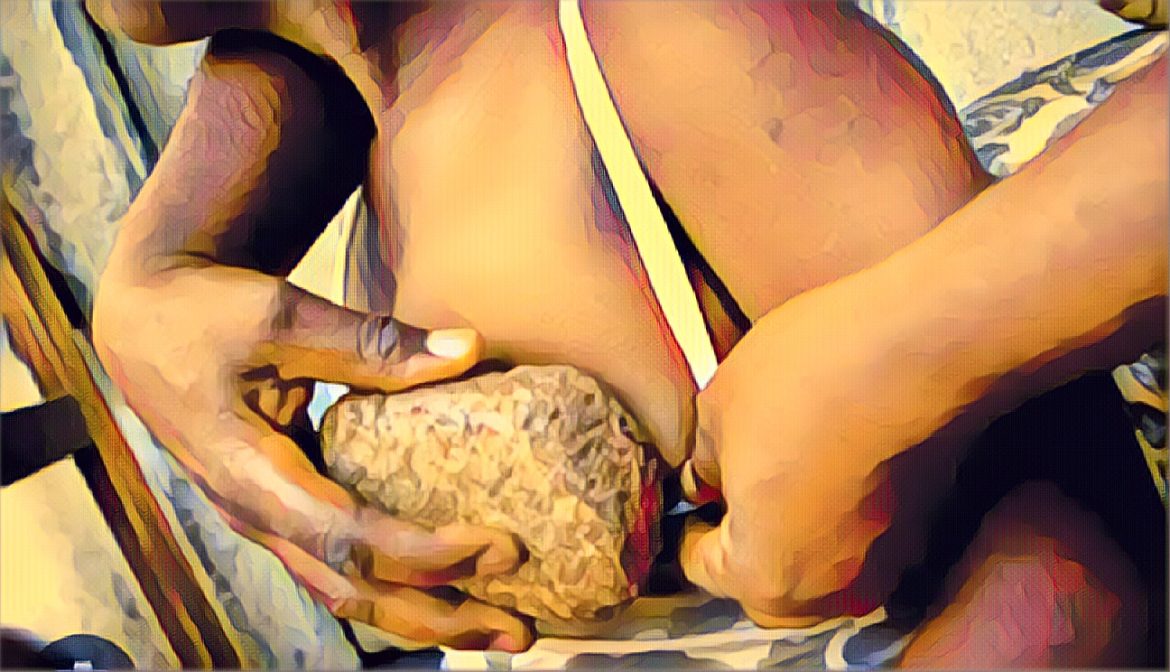In the heart of Nigeria’s diverse communities, from the indigenous neighborhoods of Abuja to the remote corners of Niger State and Cross River’s Cameroonian communities, a deeply rooted practice endures, casting a shadow on the lives of young girls. Known by several names—breast ironing, bosom flattening, breast sweeping, or breast grinding—this practice involves the use of heated objects to press down the developing breasts of young girls, a process that is not only painful but fraught with profound implications for their health and well-being.
Breast ironing is carried out in secrecy, often by close female relatives, under the guise of tradition or initiation into womanhood. This painful rite of passage is believed to make girls less attractive to men, thereby protecting them from sexual harassment, early pregnancy, and the pressures of underage marriage. Yet, the reality is far more complex and damaging than its purported benefits. Investigations and reports have illuminated the harsh truth about breast ironing, revealing a practice that inflicts pain, trauma, and lasting physical harm on its young victims.
In communities like Pygba Sama and Kpaduma, the practice is alarmingly prevalent, with one in three girls aged between eight and 14 having undergone this process. Activists and organizations, including gender-based advocate Benjamin Ocheche and the Girdle Advocacy Projects, have highlighted the widespread nature of this issue, with estimates suggesting that over two million girls have been subjected to breast ironing across Nigeria between 2020 and 2024. Despite its widespread occurrence, breast ironing remains under-reported, shielded by the cloak of tradition and societal norms that discourage open discussion and critique.
The United Nations has categorized breast ironing as one of the five under-reported gender-based crimes, with a staggering 3.8 million young women globally having been victims of this harmful practice. This figure underscores the urgent need for awareness, education, and action to combat a tradition that not only endangers the physical health of girls but also their psychological well-being and future prospects.
The motivations behind breast ironing are complex, rooted in a desire to protect young girls from the sexual advances of men and the societal repercussions of early pregnancy and marriage. However, the consequences of this practice are dire. Victims of breast ironing suffer from a range of health issues, including tissue damage, infections, dissymmetry of the breasts, and potential complications during breastfeeding. Medical professionals, including Dr. Joseph Omo-Emevor and Dr. Tunji Akintade, have voiced their concerns about the practice, emphasizing the risk of infections, hormonal imbalances, and the potential for breast cancer.
Despite the cultural underpinnings of breast ironing, there is a growing movement against this practice. Initiatives by the Federal Ministry of Women Affairs and advocacy by non-governmental organizations are steps toward raising awareness and fostering change. Education and community engagement are key to challenging the norms that perpetuate breast ironing, emphasizing the value of the girl child’s natural development and well-being over harmful traditional practices.
As Nigeria and other affected countries grapple with the realities of breast ironing, it becomes clear that the path to eradicating this practice lies in a concerted effort that involves government action, community engagement, and a commitment to the rights and health of the girl child. Through education, advocacy, and legal reforms, there is hope for a future where girls can grow and thrive without fear of pain or harm in the name of tradition. The fight against breast ironing is not just about protecting individual girls; it’s about challenging and changing the societal norms that undervalue women and girls, paving the way for a more equitable and just world.
Source: The Guardian


